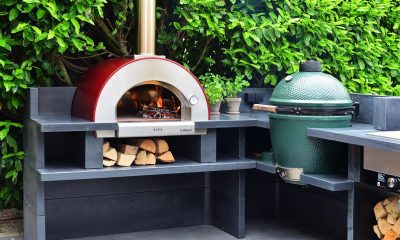If you’re planning to run a commercial kitchen or any other business that stores large amounts of perishable items, you need quality refrigeration. Commercial fridges help maintain your ingredients fresh and salads crispy, but most importantly, they keep harmful bacteria away from food. That being said, proper refrigeration is essential for adhering to safety codes and producing quality food that will ensure your customers are satisfied. Read on to find out how to select the right type of refrigerators for a commercial kitchen.
Efficiency
Like any business owner, you want your equipment to provide you with the best value for your money. Considering commercial fridges, it all comes down to efficiency – a compromise between how good is the fridge at maintaining temperature levels and how much electricity it consumes. For that reason, checking the energy rating label on an industrial kitchen fridge is crucial. The more stars, the more efficient the fridge is compared to other models in the same category. Models with higher energy ratings might be a bit more expensive, but the fact that they need less electricity to run means you can expect significant savings.
Types of Refrigerators
The size of your kitchen and your needs are the biggest factors when it comes to what type of fridge to buy. Large walk-in coolers and freezers might have the most capacity for storing goods, but if you have limited space they won’t work for you. In that case, an upright cooler or a chest freezer can provide you with a lot of storage without taking up too much valuable space. If you don’t need to store a lot of frozen items, an upright fridge with a separate freezer compartment might be a great compromise. There are also worktop refrigerators, which help speed up the process of food preparation by keeping your ingredients close at hand. They commonly come in under bench and pizza prep styles.
Condenser Location
The condenser unit on a fridge is what helps keep your food cold. Usually, fridges have top-mount or bottom-mount condensers, each with their own advantages and disadvantages depending on a variety of factors. First of all, you need to know the exact spot where the industrial kitchen fridge will be located. If you plan to place it near the cooking line, a bottom-mount will be a better solution because grease from cooking won’t make its way into the air intake of the fridge. A bottom-mount is also much easier to clean and maintain, and typically less expensive. On the other hand, commercial fridges with top-mounted compressors do not create as much heat in the space surrounding them, as the warm air they produce can quickly vent off.














You must be logged in to post a comment Login